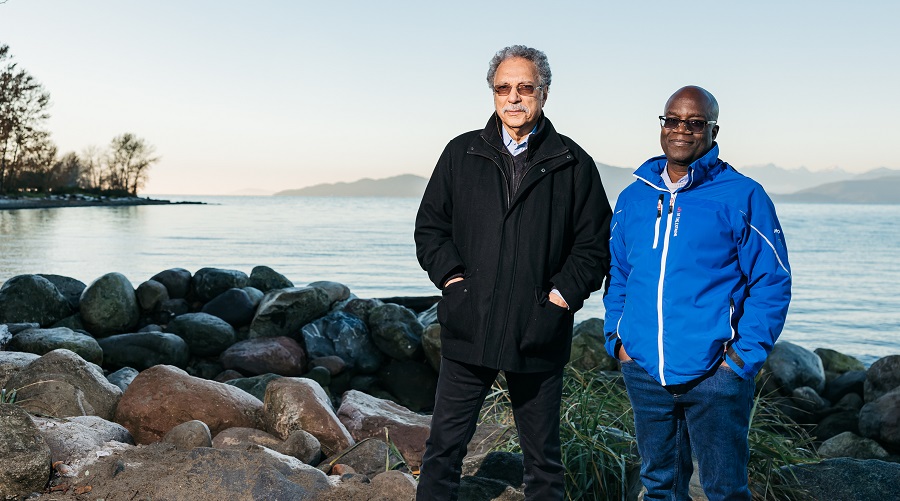The 2023 Tyler Prize for Environmental Achievement, often described as the ‘Nobel Prize for the Environment’, has been awarded to two courageous Canadian ocean fisheries experts: ecologist Daniel Pauly and economist Rashid Sumaila.
Fish are an integral part of the world’s oceans, which in turn produce 50 percent of the Earth’s oxygen – and this year the Tyler Prize honours the work of two scientists protecting the ‘lungs of the planet’.
Both Laureates, long-time colleagues at the University of British Columbia’s Institute for the Oceans and Fisheries (UBC – IOF), said they wanted to use the Tyler Prize to spread an urgent and evidence-based message: all fishing on the high seas should be banned.
“Creating no-take marine reserves is something we must do. Banning fishing in the high seas, which is the area outside the 200-nautical-mile zones of maritime countries, will create a critically-needed ‘fish bank’ for the world,” said Sumaila, who is the Canada Research Chair in Interdisciplinary Ocean and Fisheries Economics at UBC.
“If we don’t stop overfishing, we will lose marine stocks essential for food security and biodiversity, and the ocean’s ability to effectively regulate global temperatures,” added Pauly, who is the Founder and Principal Investigator of the UBC research initiative Sea Around Us.
Sumaila and Pauly have published widely on the ecological and economic effects of the proposed industrial fishing ban on the high seas, which has had support from a growing number of scientists such as Dr. Sylvia Earle. Both Laureates, who are on the Board of Directors of Oceana, have also co-authored research calling for an end to the massive government subsidies given to major fishing companies.
“A high seas fishing ban is one of the most effective ways to reverse the damage inflicted on the ocean through decades of unsustainable overfishing, mostly at the hands of wealthy Western countries,” Pauly said.
“Our modelling shows that closing the high seas would result in no loss in total global catch – just a more equitable distribution. Most commercially fished species move back and forth between the high seas and coastal areas, where they can be caught in a country’s exclusive economic zone (EEZ),” Pauly said.
“Furthermore, the carbon value of the fish in the high seas is 10 times the value of fish we take each year to sell and to eat. We cannot lose the value of this essential ecosystem service, simply to exploit it for profit,” Pauly said.
Sumaila added that support for a high seas fishing ban continued to grow – and that the closing of Antarctica’s Ross Sea in 2016, which created the world’s largest marine protected area – served as a valuable model.
“And more than 190 countries committed to the 30×30 agreement at the Convention of Biodiversity Conference of the Parties (COP15) in December – to protect 30 per cent of their land and waters by 2030… so there are good signs of progress,” Sumaila said.
“But we must move faster. Overfishing increases global emergencies such as climate change, biodiversity loss and food insecurity – particularly for already vulnerable communities, such as Indigenous Peoples and populations in the Global South,” Sumaila noted.
“Banning fishing on the high seas – it’s good for biodiversity, it’s good economically, it’s good for global food security. And it’s good for equity of distribution because smaller countries benefit when fish come into their catchment area, instead of only China, Korea, Japan, Spain, etc., taking all the fish in the high seas. There are so many good reasons to do this… before it is too late,” he said.
Chair of the Tyler Prize for Environmental Achievement, Julia Marton-Lefèvre said that 2023 marks the 50th anniversary of the Prize, and she is honoured to bestow this historic recognition upon scientists dedicated to protecting natural resources for future generations.
“Our lives and livelihoods depend on the ocean, which covers more than 70 percent of Earth. The Tyler Prize Executive Committee recognizes Professors Pauly’s and Sumaila’s outstanding individual and complementary achievements towards the conservation of this global life source,” she said.
“By pioneering analytical approaches and knowledge platforms to assess the global state of world fisheries, they have discovered viable solutions, offering policymakers a realistic pathway towards the sustainable management of ocean fisheries,” Marton-Lefèvre said.
On April 27, 2023, the Laureates will deliver a public presentation on their work at the University of Southern California. The following day, they will be presented with the Prize ($250,000, to be shared equally). Members of the press interested in attending should email the media contact below.
The Tyler Prize is administered by the University of Southern California.


